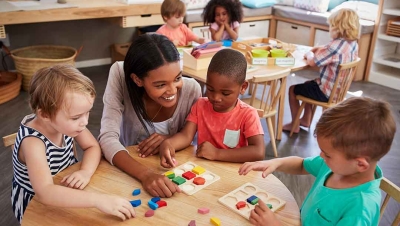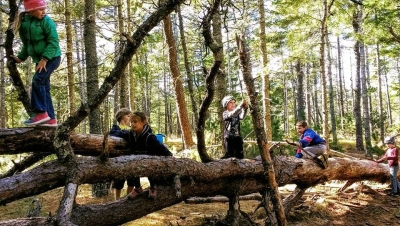Fun Ways to Introduce Your Family to New Cultures at Home
Learning about a new culture is always exciting, but history class isn’t always the most engaging way for kids to experience them. However, there are ways you can expand their worldly experience right at home. A child may not sit down and study words on a page, but they can experience learning more about the culture you bring up through hands-on experiences. Respectfully expose them to different ways of life and encourage them to be more open-minded.
1. Learn a New Language
Languages can be challenging to learn, but children can obtain fluency much easier than adults. If your kids are young, consider teaching them a few words. Simple phrases like “Hello” or “I love you” are a great way to start. Children up to age 3 are best able to learn a second language. They may even become bilingual before starting school.
2. Research Historical Figures
Every culture has someone who influenced its history in some way. With a bit of digging, you should find a few of the most influential figures in the place you've chosen. Try to synthesize the information and melt it down into language your children will understand. Get them excited to learn about these historical figures that helped shape the country you’re learning about.
3. Try New Cuisines
Find some authentic recipes from another culture. Educate your family on how the recipe came to be and its significance in its original culture. Look for menu items you can pair with everyday dishes to help coax an unadventurous eater out of their comfort zone. Your cooking doesn’t have to be perfect. You can pair ingredients from other cultures with foods your kids already love to ease them into the new experience – like their favorite chicken nuggets with an Asian-inspired sauce.
4. Tell Stories
Your children will love to listen to stories from another culture, whether fiction or historical. There may be cultural variations of a story you or your family recognize. Strive to find as many interesting books as you can. You can share them with your children just before bedtime or cozied up on the couch or by a fire pit. Stories can teach your family empathy and entertain them all at once, so they're a worthwhile investment of your time.
5. Listen to Music
People say music is a universal language. You can hear all sorts of emotions from the tone of the music: happiness, sadness, anger, love. People can express their feelings and tell their stories. Experiencing the music of another culture can help you understand its rich history and learn more about the values they prioritize.
6. Discover Wildlife in the Area
Find your country of choice on the globe. Once your child has an idea of its rough geographical area and what continent it belongs to, you can start looking at the flora and fauna of the area. Many children learn about animals and their habitats in science class, so using that knowledge as a stepping stone can be a great strategy. Learning more about the creatures that thrive in the place you’re researching could encourage your kids to want to know more about the people that also live there.
7. Celebrate a New Holiday
Dig into the culture your family wants to learn about. It's bound to have holidays and special occasions that you can celebrate with your children. Make sure you observe the culture in a respectful, educational way. Appreciate it for what it is rather than trying to make it something of your own. After all, these days are special to the places they come from and should be treated as such.
Start a Dialogue About Other Cultures
Teaching your children about other cultures while they're young can mold them into open-minded individuals who appreciate new things. Exposure to different cultures could make them want to travel more and experience everything the world offers.
You and any other adults in the house can also benefit from absorbing new information — that way, you have plenty of knowledge to educate your colleagues and friends. Learn more about other cultures so you can appreciate the people who come from them and be a better world citizen.






